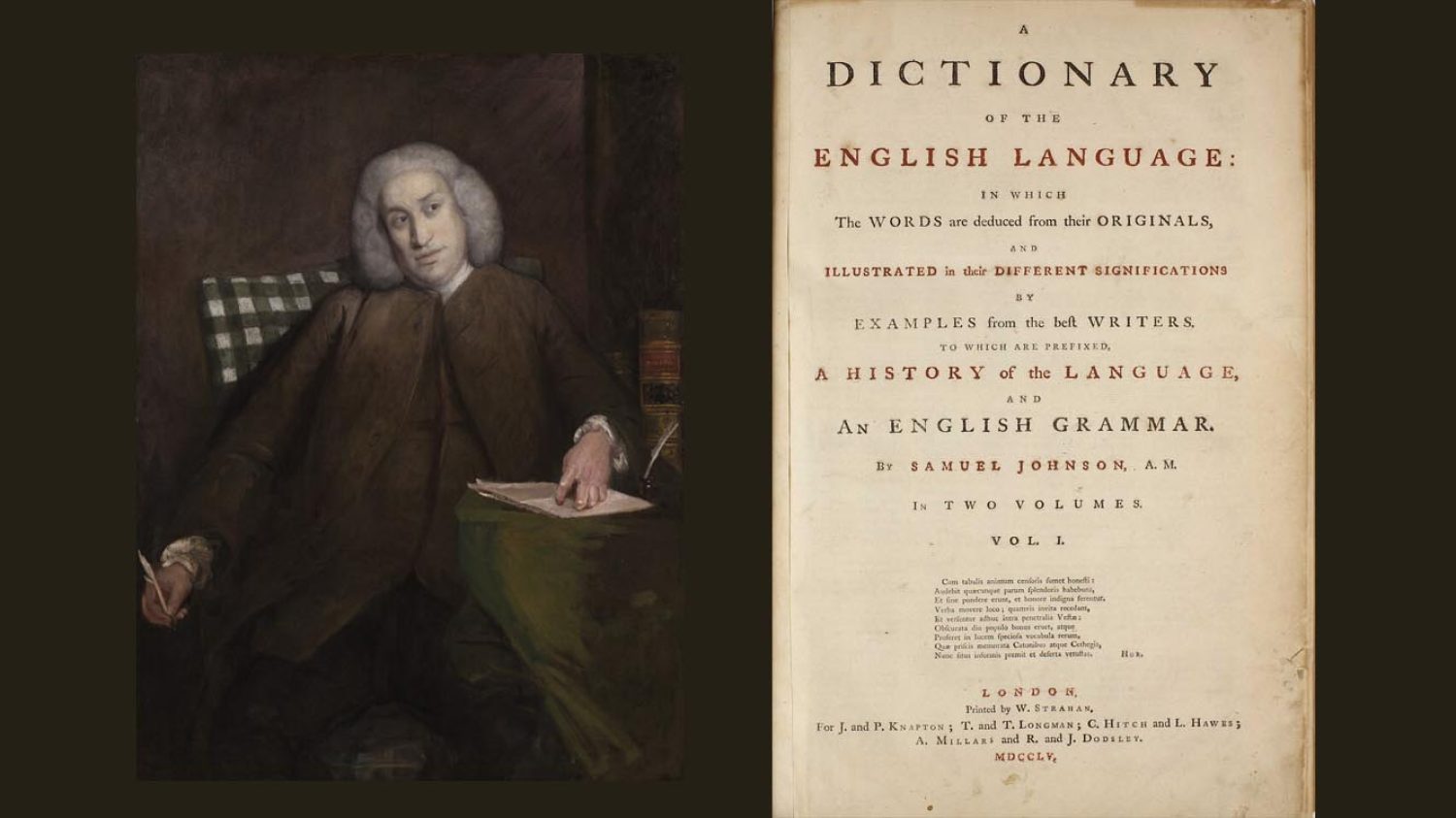Dr Johnson took quotations from books dating back to the 16th century for the citations in his dictionary, and relied heavily on the works of authors he admired and who were popular at the time—Shakespeare, John Milton, Alexander Pope, and Edmund Spenser included. In doing so, he established a lexicographic trend that still survives in dictionaries to this day. [1]
Samuel Johnson’s Dictionary of the English Language is one of the most significant and influential dictionaries in the English language. It was first published in two volumes on 15 April 1755 after almost a decade of work by Johnson.
Compiled with the help of six assistants who collected words from a wide variety of sources, including works of literature, Shakespeare’s plays, religious texts, scientific treatises, and even the labels on medicine bottles, it was the first dictionary to include illustrative quotations from English literature to show how words were used in context. The dictionary also included detailed etymologies of many words and aimed to provide a comprehensive definition of every word in the English language. It was intended to be a standard reference work for scholars, writers, and the educated public.
The dictionary contains around 42,000 entries, each with a definition, pronunciation, part of speech, and illustrative quotation. The definitions are often humorous, erudite, and sometimes idiosyncratic, reflecting Johnson’s own personality and style.
Despite being criticised for inaccuracies, especially on questions of etymology, Johnson’s Dictionary was an immediate success and was widely praised for its scope and literary style. It became the standard reference work for the English language for many years, and its influence can still be seen today in many aspects of English usage and lexicography. Many people particularly admired the fact that Johnson had completed the work essentially single-handed.
Samuel Johnson’s Dictionary of the English Language is a monumental work of scholarship and a testament to the power and flexibility of the English language. It remains a landmark achievement in the history of lexicography and a valuable resource for anyone interested in the English language and its development over time.
Selected links for relevant websites, books, movies, videos, and more. Some of these links lead to protected content on this website, learn more about that here.
Susannah Fullerton: Samuel Johnson is born
Susannah Fullerton: Samuel Johnson marries
Susannah Fullerton: Samuel Johnson agrees to compile a dictionary
Susannah Fullerton: Samuel Johnson dies
Susannah Fullerton: The Johnson Society of Australia
Susannah Fullerton: A clean shirt for the ladies … Dr Johnson and women of Scotland, a free video talk
Susannah Fullerton: Dr Johnson & His Dictionary, a video talk
A Dictionary of the English Language by Dr Samuel Johnson online
24 Weird and Wonderful Entries in Dr Johnson’s Dictionary
The Johnson Society of Australia
